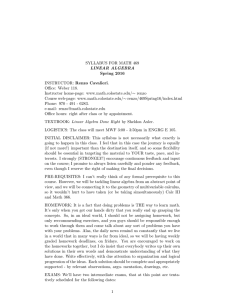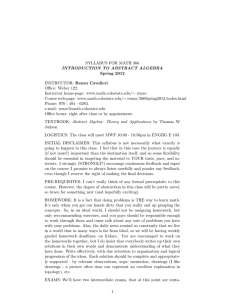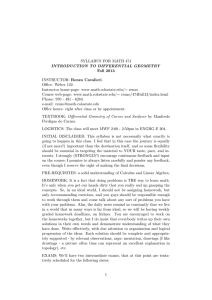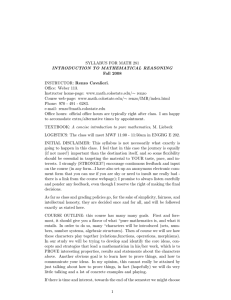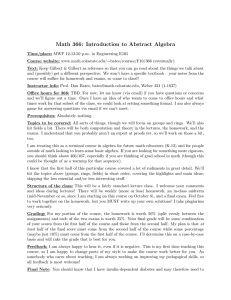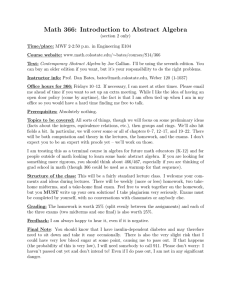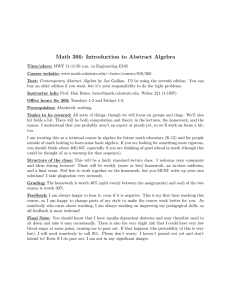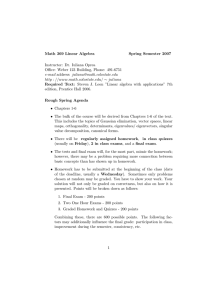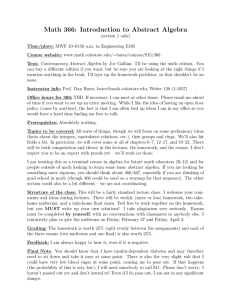SYLLABUS FOR MATH 469 LINEAR ALGEBRA Spring 2014 INSTRUCTOR: Renzo Cavalieri.
advertisement
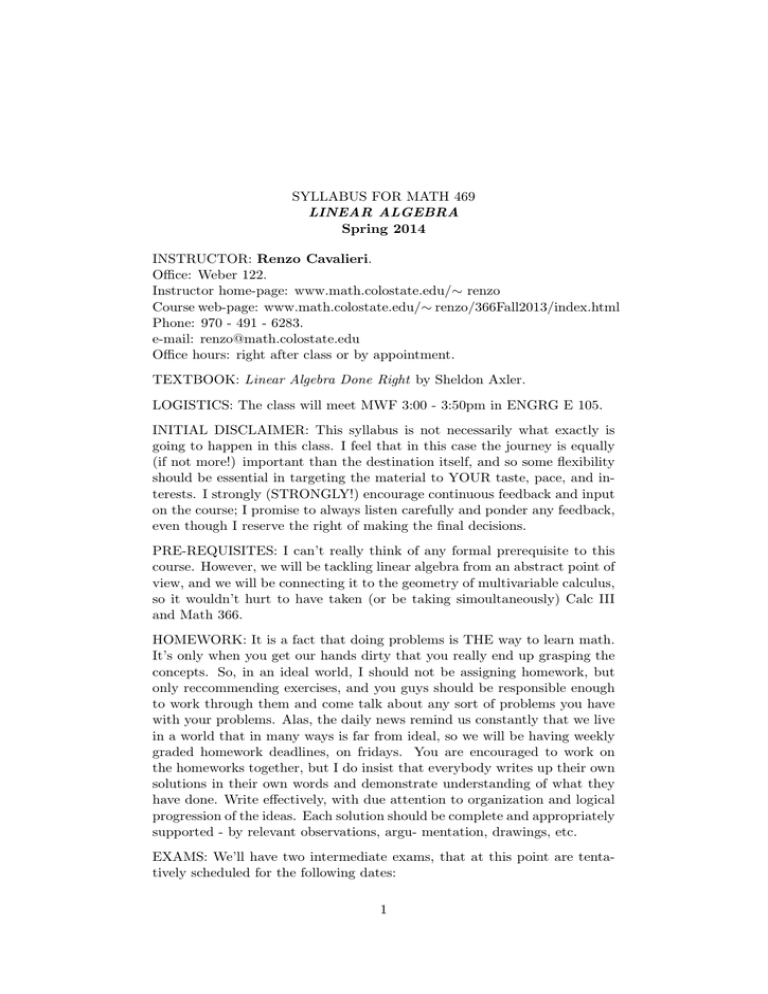
SYLLABUS FOR MATH 469 LINEAR ALGEBRA Spring 2014 INSTRUCTOR: Renzo Cavalieri. Office: Weber 122. Instructor home-page: www.math.colostate.edu/∼ renzo Course web-page: www.math.colostate.edu/∼ renzo/366Fall2013/index.html Phone: 970 - 491 - 6283. e-mail: renzo@math.colostate.edu Office hours: right after class or by appointment. TEXTBOOK: Linear Algebra Done Right by Sheldon Axler. LOGISTICS: The class will meet MWF 3:00 - 3:50pm in ENGRG E 105. INITIAL DISCLAIMER: This syllabus is not necessarily what exactly is going to happen in this class. I feel that in this case the journey is equally (if not more!) important than the destination itself, and so some flexibility should be essential in targeting the material to YOUR taste, pace, and interests. I strongly (STRONGLY!) encourage continuous feedback and input on the course; I promise to always listen carefully and ponder any feedback, even though I reserve the right of making the final decisions. PRE-REQUISITES: I can’t really think of any formal prerequisite to this course. However, we will be tackling linear algebra from an abstract point of view, and we will be connecting it to the geometry of multivariable calculus, so it wouldn’t hurt to have taken (or be taking simoultaneously) Calc III and Math 366. HOMEWORK: It is a fact that doing problems is THE way to learn math. It’s only when you get our hands dirty that you really end up grasping the concepts. So, in an ideal world, I should not be assigning homework, but only reccommending exercises, and you guys should be responsible enough to work through them and come talk about any sort of problems you have with your problems. Alas, the daily news remind us constantly that we live in a world that in many ways is far from ideal, so we will be having weekly graded homework deadlines, on fridays. You are encouraged to work on the homeworks together, but I do insist that everybody writes up their own solutions in their own words and demonstrate understanding of what they have done. Write effectively, with due attention to organization and logical progression of the ideas. Each solution should be complete and appropriately supported - by relevant observations, argu- mentation, drawings, etc. EXAMS: We’ll have two intermediate exams, that at this point are tentatively scheduled for the following dates: 1 • Assessment exam: Jan 27th • First midterm: Feb 21st • Second midterm: Apr 2nd FINAL EXAM: May 13 (7:30-9:30a ugh) or take home if there is consensus. COURSE GRADES. Here is the chart of how grades will be decided: • 30% for the final exam. • 25% for each of the two intermediate exams. • 15% for homework. • 5% for class attendance and participation. MISCELLANEOUS: Make up quizzes and exams can be arranged, but please, please, please do notify me beforehand. I reserve the right to refuse to offer a makeup if I am asked after the event itself. In case of special needs I am willing to make special arrangements about homework, attendance policy etc etc but again I require that you discuss such arrangements “before the fact”. CLASS PARTICIPATION: I consider class participation extremely important. I encourage you to ask questions, make remarks and comments. I will often ask you guys to come up to the blackboard to solve exercises. And yes, questions. Ask lots of questions, don’t be afraid...as usual, if you are confused, most likely other people are, and everybody is just being shy. Worse case scenario, if I feel I can’t afford the time to answer your question during class time, we will discuss it after class. Remember: NO QUESTION WILL EVER BE HELD AGAINST YOU! ADA STATEMENT: the American with Disabilities Act requires that reasonable accomodations be provided for students with physical, cognitive, systemic, learning and psychiatric disabilities. Please contact me at the beginning of the course to discuss any such accomodations you may require for the course. 2
